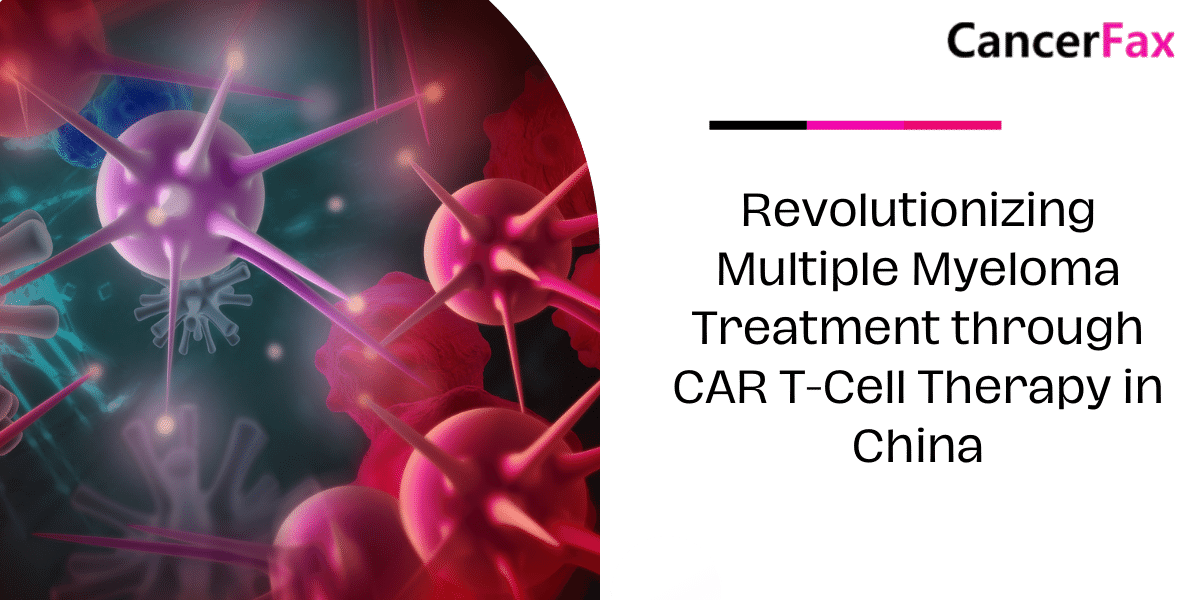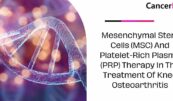Revolutionizing Multiple Myeloma Treatment through CAR T-Cell Therapy in China
Feb 2024: China’s pioneering efforts in creating breakthrough cancer therapeutics have gained traction with the introduction of chimeric antigen receptor (CAR)-engineered T-cell (CAR T) therapy for multiple myeloma, a devastating blood cancer characterized by aberrant plasma cells. This new method represents a watershed moment in customized medicine, providing hope to patients whose alternatives had hitherto been limited.
Overview of CAR-T Cell Therapy
CAR T-cell therapy uses a patient’s own immune cells to identify and target cancer cells that express specific proteins. Engineering these T cells to incorporate artificial receptors known as CARs transforms them into highly targeted weapons capable of destroying tumor cells. When someone has multiple myeloma, CAR T cells are changed to target BCMA, a protein that is found in large amounts in patients.
Clinical Trials and Results
FUCASO
In 2018, IASO Biotherapeutics and Innovent Biologics launched multicenter Phase 1/2 research to evaluate equecabtagene autoleucel (FUCASO), China’s first domestically made CAR T-cell treatment. The study included 79 individuals with multiple myeloma who had exhausted their standard therapy choices. Interestingly, the overall response rate (ORR) achieved 94.9%, while the complete response/stringent complete response (CR/sCR) rate was 58.2%. The median time to recovery and CR/sCR were 16 days and 95 days, respectively. These findings confirmed equecabtagene autoleucel’s outstanding efficacy as well as its excellent safety profile.
For patients who had previously had CAR T-cell treatment, the ORR rose to 98.5%, with six achieving CR/sCR. Notably, the first patient treated in the trial maintained rigorous full remission for more than 40 months.
CILTA-CEL therapy
Cilta-cel, also known as ciltacabtagene autoleucel, is a cutting-edge chimeric antigen receptor (CAR) T-cell treatment that targets B-cell maturation antigen (BCMA), a protein that is overexpressed in multiple myeloma cells. This novel medicine has shown great promise in treating relapsed and refractory multiple myeloma, providing new hope to patients who have exhausted traditional treatment alternatives.
Cilota-cel treatment genetically modifies a patient’s T cells to express CARs that bind to BCMA on myeloma cells. Once put back into the patient, these altered CAR T cells can successfully target and destroy malignant cells, resulting in tumor regression and possibly long-term remission.
Clinical efficacy
Clinical trials, notably the important CARTITUDE-1 trial, have shown that cilta-cel had outstanding efficacy in extensively pretreated patients with relapsed or refractory multiple myeloma. The results of these trials revealed a remarkable overall response rate (ORR) of 98%, with a significant proportion of patients achieving strict complete responses (sCR).
At a median follow-up of 28 months, cilta-cel has demonstrated sustained responses, with median progression-free survival yet to be reached. The medication has also demonstrated reasonable safety profiles, with adverse events successfully managed through supportive care methods.
Challenges and Opportunities
Despite the promising results, significant challenges remain. Most clinical trials in China are small-scale and single-center, with insufficient rigor and coordination among institutions. To address these restrictions, firms must aggressively participate in the commercialization of CAR T therapy, ensuring that it is widely available to patients.
Furthermore, improved manufacturing methods, faster regulatory channels, and increased patient access are required to ensure that CAR T-cell therapy is successfully translated from laboratory bench to bedside. Collaborations between academia, industry, and government agencies are critical for driving innovation and improving patient care.
What are the risks of CAR T-Cell therapy in multiple myeloma patients?
The side effects of CAR T-Cell therapy in multiple myeloma are similar to those in leukemia and lymphoma.
Cytokine Release Syndrome (CRS) is one of the most prevalent side effects of CAR T-cell therapy, causing symptoms such as fever, low blood pressure, difficulty breathing, nausea, and rashes. Most occurrences are mild, but severe ones can be life-threatening.
Neurological side effects, such as disorientation, seizures, or difficulties speaking and understanding, can be severe and require rapid medical intervention.
Other Serious side-effects: These may include allergic responses during infusion, a compromised immune system, which increases the risk of infection, low blood cell counts, and potential long-term neurological system consequences.
To summarize, while CAR T-cell therapy provides significant benefits in terms of high response rates and personalized treatment for multiple myeloma patients, it also carries risks such as cytokine release syndrome and neurological side effects, which must be carefully monitored and managed by healthcare providers. Close monitoring after therapy is required to maintain patient safety and optimize treatment outcomes.
Future Prospects
As China continues to invest extensively in biomedical research, the field of CAR T-cell treatment is expected to grow dramatically. The China National Medical Products Administration (NMPA) recognized the promise of CAR T-cell treatment by designating equecabtagene autoleucel as both a breakthrough therapy and an orphan medicine. This endorsement demonstrates the Chinese government’s dedication to developing cutting-edge medicinal advances.
Also, equecabtagene autoleucel is being looked at as a possible treatment for neuromyelitis optica spectrum illness. This shows that CAR T-cell therapy can be used for things other than cancer.
With continuous investment in infrastructure, education, and collaborative relationships, China is well-positioned to lead the way in CAR T-cell therapy for multiple myeloma and other life-threatening diseases.
What is the cost of CAR T-Cell therapy for multiple myeloma in China?
The cost of CAR T-Cell therapy for multiple myeloma depends upon the type of CAR T Cell therapy chosen and the hospital chosen. The cost of FUCASO treatment is around $ 200,000 USD in different hospitals. The cost of CILTA-CEL therapy also varies between $ 200-250,000 USD. However, patients can also opt for CAR T-Cell therapy clinical trials which will cost between $ 40-80,000 USD.
Dr. Nishant Mittal is a highly accomplished researcher with over 13 years of experience in the fields of cardiovascular biology and cancer research. His career is marked by significant contributions to stem cell biology, developmental biology, and innovative research techniques.
Research Highlights
Dr. Mittal's research has focused on several key areas:
1) Cardiovascular Development and Regeneration: He studied coronary vessel development and regeneration using zebrafish models1.
2) Cancer Biology: At Dartmouth College, he developed zebrafish models for studying tumor heterogeneity and clonal evolution in pancreatic cancer.
3) Developmental Biology: His doctoral work at Keio University involved identifying and characterizing medaka fish mutants with cardiovascular defects.
4) Stem Cell Research: He investigated the effects of folic acid on mouse embryonic stem cells and worked on cryopreservation techniques for hematopoietic stem cells.
Publications and Presentations
Dr. Mittal has authored several peer-reviewed publications in reputable journals such as Scientific Reports, Cardiovascular Research, and Disease Models & Mechanisms1. He has also presented his research at numerous international conferences, including the Stanford-Weill Cornell Cardiovascular Research Symposium and the Weinstein Cardiovascular Development Conference.
In summary, Dr. Nishant Mittal is a dedicated and accomplished researcher with a strong track record in cardiovascular and cancer biology, demonstrating expertise in various model systems and a commitment to advancing scientific knowledge through innovative research approaches.
- Comments Closed
- February 27th, 2024






BCMA CAR-T therapy, CAR T-cell clinical trials China, CAR T-cell therapy cost China, CAR-T cell therapy China, Immunotherapy for myeloma, Multiple Myeloma Treatment, Novel myeloma therapies, Relapsed refractory multiple myeloma
Welcome to CancerFax !
BCMA-targeted CAR T cell therapy for multiple myeloma in China costs between 55,000 and 90,000 USD, depending on the type and stage of the disease and the hospital chosen.
Equecabtagene Autoleucel (FUCASO), which is approved by the NMPA, will cost around 250,000 USD.
We work with the best hematology hospitals in China. Please send us your medical reports, and we will get back to you with details of the treatment, hospital, and cost estimate.
Chat to know more>